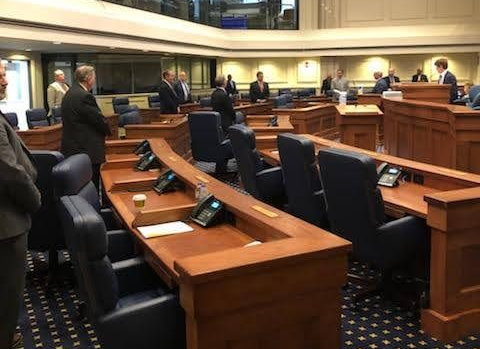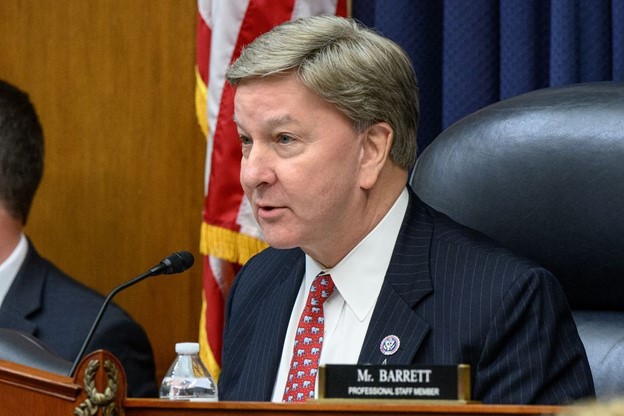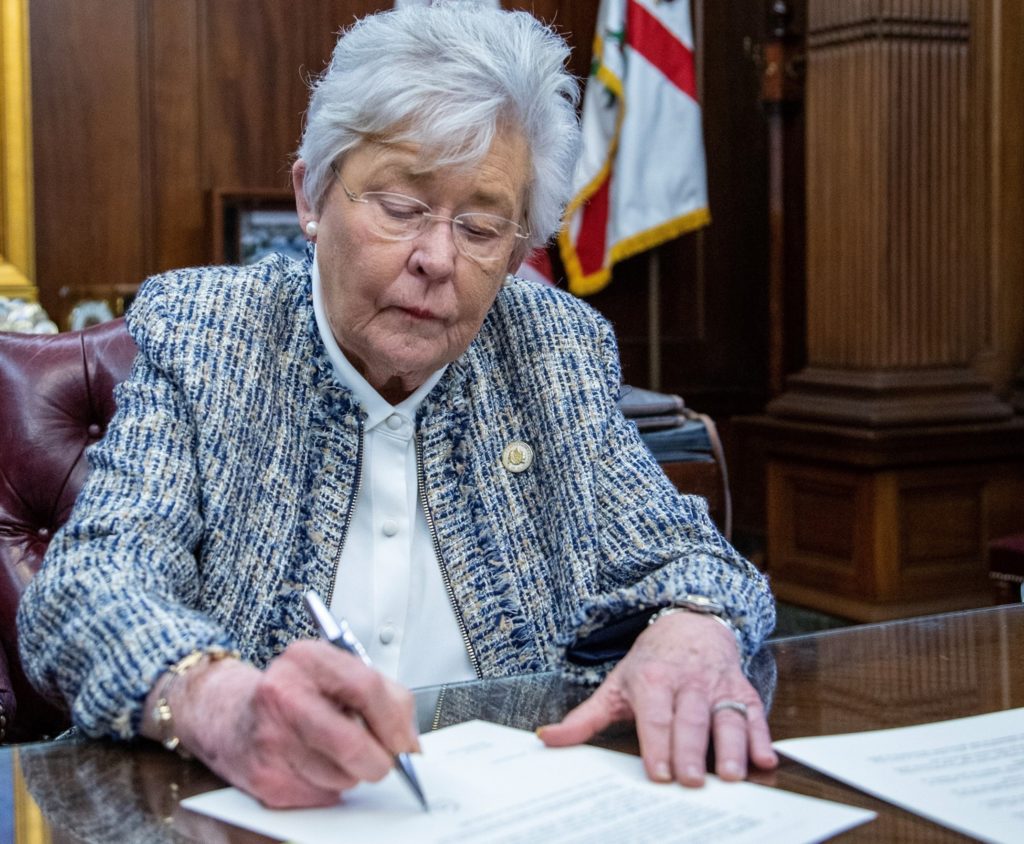Senate Committee advances legislation to allow some social workers to diagnose mental illness

The Alabama Senate State Government Affairs Committee voted to advance legislation allowing certain highly trained social workers to diagnose mental illnesses. House Bill 56 (HB56) is sponsored by State Representative Frances Holk-Jones. HB56 passed in the House 104 to 1. Holk-Jones explained that “Alabama is currently the only state that does not allow” these highly trained social workers to diagnose mental illness. “We are losing these social workers to other states,” Holk-Jones said. “This allows people to get diagnosed and treatment without traveling to see a medical professional,” Holk-Jones continued. Holk-Jones said that this would also enable people to get treatment via telehealth. Sen. Dan Roberts asked, “Is this the same bill that Senator Coleman Madison had that we passed out?” Holk-Jones said yes. The Senate version is SB109. SB109 has passed the Senate and has been referred to the House Health Committee. Sen. Robert Stewart said, “I want to say that I have a therapist. He is out of Maryland.” Stewart expressed his support for the bill and telehealth. Sen. Merika Coleman asked, “Has there been any pushback at all?” Holk-Jones answered, “No.” State Sen. Tom Butler chairs the Senate State Governmental Affairs Committee. The legislation expands the scope of practice of a licensed independent clinical social worker, including the authority to diagnose and develop treatment plans. “The scope of practice does not include the diagnosis, treatment, or provision of advice to a client for problems or complaints relating to conditions outside the boundaries of the practice of social work.” The legislation states that no individual may engage in the independent clinical practice of social work unless they satisfy all of the following: (1) Licensed is licensed under this chapter as a licensed independent clinical social worker; and. (2) Has a doctorate or master’s degree from a school of social work approved, accredited, or in candidacy granted by the Council on Social Work Education; and. (3) Has had two years of full-time or three years of part-time postgraduate experience under appropriate supervision in the specified social work method or four years of full-time or five years of part-time postgraduate experience under appropriate supervision in the specialty in which the applicant will practice. (4) Has passed an examination prepared by the board for this purpose; except that prior to the time that an examination is prepared by the board for this purpose, no person individual who otherwise meets the requirements of this section will be prohibited from engaging in the private independent practice of social work; and. (5) Has been issued by mail a certified letter of certification stating his or her qualification for private independent practice by the board; and. (6) Has paid an initial certification fee set by the board. “The terms diagnose and treatment, whether considered in isolation or in conjunction with the rules of the board, may not be construed to permit the performance of any act which a licensed clinical social worker is not educated or trained to perform including, but not limited to, any of the following: (1) Administering and interpreting psychological tests or intellectual, neuropsychological, personality, or projective instruments. (2) Admitting any individual to a hospital for treatment of any condition that is outside the boundaries of the practice of social work, as provided in subsection (b). (3) Treating any individual in a hospital setting without medical supervision. (4) Prescribing medicinal drugs. (5) Authorizing clinical laboratory procedures or radiological procedures. (6) Using electroconvulsive therapy. The state of Alabama has a significant shortage of mental health professionals. The Committee voted to give HB56 a favorable report without amendment. It could be considered by the full Senate as early as Tuesday. Through Friday, 618 bills have been introduced in the legislative session. Tuesday will be day 14 of the 2023 Alabama Regular Legislative Session. To connect with the author of this story or to comment, email brandonmreporter@gmail.com.
Legislature passes bill to prevent municipalities from adding to state building codes

On Thursday, the Alabama Legislature passed legislation that would prevent municipalities from adding additional requirements for homebuilders that are not found in the state building code. Senate Bill 40 (SB40) is sponsored by State Senator Chris Elliott. The legislation was carried in the Alabama House of Representatives by State Representative Reed Ingram. Rep. Ingram told the Legislature that extra demands from municipalities were driving up the cost of new home construction. “A lot of municipalities are making them do extra work,” Ingram said. “They are making that add extra support for roof solar panels and add extra wiring for electric stoves in homes in a subdivision that are built for gas stoves.” SB40 prohibits the adoption or enforcement of certain building codes requiring the installation of certain latent, non-operable features in a residential structure.” “It is not what the builder wants or what the homeowners want,” Ingram explained. “They are making them run a 220 line and do a lot of extra work for electric stoves that are not needed. It affects every home in the entire subdivision. You have never had to do that before.” “This is a bill from the Homebuilders Association,” Ingram explained. “This is happening all over the state. It is adding extra cost for the homeowner.” Rep. Laura Hall asked if the League of Municipalities opposed this. Ingram said, “It came through my committee, and we had no group opposition.” “Some are also requiring to wire for electric cars,” Ingram said. “The homeowner may not want an electric car. You can always go back and wire in for electric cars.” “When you are building a spec home, if a builder wants to have all gas or electric, that is his choice,” Ingram added. Rep. Scott Stadthagen said, “I want to thank you for your efforts on behalf of the homebuilding industry. Rep. Brett Easterbrook said, “I have been a home builder for 38 years. We are probably spending $25,000 and $30,000 extra on a house in Mobile and Baldwin Counties because of this.” Rep. Curtis Travis said, “I want to thank you for bringing this bill to give some control over the arbitrary decisions of local governments.” Rep. Anthony Daniels said,” This is a good bill that will help consumers. I am supportive of this bill.” Rep. Mack Butler said, “This is a liberty issue.” SB40 passed the House of Representatives 104 to 0 without amendment. It has already passed the Senate, so it now goes to the Governor for her consideration. Tuesday will be Day 14 of the 2023 Alabama Regular Legislative Session. The Alabama Constitution of 1901 limits the Legislature to no more than thirty days in a regular session. To connect with the author of this story or to comment, email brandonmreporter@gmail.com.
Mike Rogers says Army missed recruiting goal by 15,000

On Wednesday, Congressman Mike Rogers said that proposed budget cuts to the U.S. Army are “unacceptable” given the drawdown of military equipment from the Army to help Ukraine and that the Army missed its recruiting goals by 15,000 last year. Rogers is the Chairman of the House Armed Services Committee. “If we’re going to deter China, we need to recruit the best and brightest, Chairman Rogers said during a hearing on the Department of the Army Fiscal Year 2024 budget request. “We need to provide them the training, skills, and capabilities necessary to succeed on future battlefields. And we need to improve their quality of life to ensure we retain them in today’s competitive employment market.” “The Army is seeking $185.5 billion in fiscal year 2024,” Rogers said. “That amounts to an increase of less than two-tenths of one percent. Given today’s record rate of inflation, the President’s budget effectively cuts the Army by over 5 percent.” “The President’s budget cuts Army procurement, slashing combat vehicle acquisition by 16 percent and new aircraft by 22 percent,” Rogers continued. “It cuts overall Army research and development by 8 percent. That includes a whopping 42 percent reduction in early-stage research and development projects that are critical to Army modernization efforts. Finally, it guts military construction by 32 percent. Most disturbingly, That includes a 26 percent cut to family housing. It’s clear the Army is yet again the bill payer for the Pentagon.” “This will be especially hard deal with in the near term as the Army is the lead supplier of drawdown assistance to Ukraine,” Rogers said. “Making matters worse is the fact that the Army is struggling with a historic recruiting crisis. The Army missed their recruiting goal by over 15,000 soldiers last year. All the signs point to the Service being unable to meet their recruiting goals again this year. That’s unacceptable.” Rogers isn’t the only member of Congress concerned about the Army’s plans. Congressman Rob Whitman said in a hearing on military rotary aviation, “I remain concerned with the Army’s trepidation in choosing a path forward for the CH-47F Chinook and their lack of any real plan to keep the AH-64E Apache modernized. These platforms will be flying for the next few decades, so it is imperative that our heavy lift and attack fleets are modernized to remain relevant. With the Chinook and the Apache making up the lion’s share of the work at 2 of the nation’s four major rotorcraft sites, I am growing increasingly concerned about the future health of our rotorcraft industrial base. I look forward to hearing from our witnesses today on how they plan to steer us away from this incoming cliff.” Congressman Michael Waltz said during a hearing on military readiness, “Taking care of our Soldiers, Sailors, Marines, Airmen, and Guardians is the utmost responsibility of all of us here in this room. Service leadership continuously touts “people first,” but I remain skeptical of this being put into practice when I look at the status of our barracks and housing. The condition of some of this housing is astounding. It no doubt affects retention. We must provide safe barracks and housing that puts our servicemembers’ welfare first.” Congressman Mike Roger is in his 11th term representing Alabama’s Third Congressional District. To connect with the author of this story or to comment, email brandonmreporter@gmail.com.
Steve Marshall “disappointed” with Supreme Court decision to stay ruling in abortion pill case

Alabama Attorney General Steve Marshall (R) on Friday expressed his disappointment with a United States Supreme Court decision granting stay in the abortion pill case. “While I am disappointed that the stay has remained in place, I am confident the appeals process will reinforce that President [Joe] Biden lacked the authority to enact a dangerous mail-order abortion regime,” said AG Marshall. “As the last line of defense against President Biden’s radical agenda, I will continue to do everything in my power to protect mothers and the life of the unborn.” The U.S. Supreme Court’s decision comes after the Biden Administration appealed a U.S. Federal District Court decision in Texas halting the Federal Drug Administration’s (FDA) approval of chemical abortions as well as its removal of important safety measures associated with the administration of abortion pills. Marshall has joined an amicus brief urging the Supreme Court to leave the lower court order in place, which blocked the FDA’s mail-order abortion regime. The Supreme Court on Friday granted emergency requests from the Biden administration and New York-based Danco Laboratories to stay the Texas decision. They are appealing a lower court ruling that would roll back the Food and Drug Administration’s approval of mifepristone – a drug used in over half of the abortions in this country. The drug has been approved for use in the U.S. since 2000, despite numerous reports of side effects, including death. The Texas Court accepted the position of pro-life activists and recognized their argument that the abortion pill is dangerous, and rolled back Biden’s mail-order abortion scheme. Susan B. Anthony List Pro-Life America said in a statement, “The FDA has one job: safeguarding the lives and health of Americans. The evidence clearly shows their failure when it comes to the abortion pill. First, the FDA inappropriately fast-tracked this dangerous drug for approval without studying its effects in teenage girls. Then under the Obama and Biden administrations, they loosened one safety standard after another – finally approving mail-order abortion drugs and ignoring the critical importance of in-person doctor supervision – and stonewalled those who sought accountability. The rate of abortion pill-related emergency room visits has skyrocketed over 500% since it was approved, while the drug manufacturers have made a handsome profit – with investors reaping a 452% return on average. The FDA ignored science and placed politics over the safety of women and girls, as well as the lives of countless unborn children. Finally, they are beginning to be held accountable.” The Biden Administration maintains that abortion is essential healthcare and that the potential side effects of mifepristone are outweighed by the potential health side effects of an unwanted pregnancy. The Supreme Court’s action Friday will leave access to mifepristone unchanged at least into next year, as the case moves through the appeals process, including a potential appeal to the Supreme Court. The case will first be at the New Orleans-based U.S. Court of Appeals for the 5th Circuit, which has set arguments in the case for May 17. To connect with the author of this story or to comment, email brandonmreporter@gmail.com.
Kay Ivey fires Early Childhood Education Secretary Barbara Cooper

On Friday, Alabama Governor Kay Ivey announced that she has removed Barbara Cooper from her position as the Secretary of the Alabama Department of Early Childhood Education (ADECE). Cooper submitted her resignation after it was discovered that ADECE was promoting “woke” concepts to the teachers of the state’s four-year-olds. The Ivey administration learned that there was a pre-K teacher’s resource book with radical content being distributed across the state. After this was confirmed, Ivey demanded that Cooper issue a memo denouncing the text and removing it from use in Alabama’s pre-K program. Cooper refused and instead offered her resignation. Gov. Ivey accepted her resignation. “The education of Alabama’s children is my top priority as governor, and there is absolutely no room to distract or take away from this mission. Let me be crystal clear,” Ivey said in a statement. “Woke concepts that have zero to do with a proper education and that are divisive at the core have no place in Alabama classrooms at any age level, let alone with our youngest learners. We want our children to be focused on the fundamentals, such as reading and math.” “Alabama’s First Class Pre-K is the best in the country, and those children are at too critical of a juncture in their educational journeys and development to get it wrong,” Ivey continued. “I remain confident in the wonderful teachers we have in pre-K classrooms around our state and in the necessity of our children receiving a strong start to their educational journeys in our First Class Pre-K program. I thank Dr. Cooper for her service, but I believe it is best we continue this historically strong program on its forward trajectory under new leadership.” Ivey said that the content is simply not in line with what the Ivey Administration or the people of Alabama stand for or believe. Ivey stated that she strongly believes that woke concepts have no place at any level of education in Alabama and should not be taken away from the overall mission of improving educational outcomes for students. The resource book told the four-year-old kindergarten teachers that there are “larger systemic forces that perpetuate systems of White privilege” and that “the United States is built on systemic and structural racism.” The resource book also instructed the K4 teachers to instruct the four-year-olds that “LGBTQIA+ need to hear and see messages that promote equality, dignity, and worth.” The glossary includes equally disturbing concepts to the Ivey Administration. Ivey said that her administration and the people of Alabama in no way, shape, or form believe should be used to influence school children, let alone four-year-olds. Ivey said that for as long as she is governor, Alabama will be focused on ensuring our students are receiving a quality education and that she does not stand for these concepts. Cooper was appointed to the position in July 2020. Dr. Jan Hume will serve as the interim secretary of the ADECE while Governor Ivey decides on a permanent secretary to lead the department in the immediate future. The legislature is considering legislation by Rep. Ed Oliver that would ban state agencies from teaching and promoting divisive concepts. The Alabama Department of Early Childhood Education is a cabinet-level agency that answers directly to the ADECE Secretary, who is appointed by the Governor and is not under the direct supervision of the State School Board – even though many of the pre-K classrooms are in Alabama elementary schools. Gov. Ivey has made expanding the state’s First Class Pre-K classrooms to improve access for four-year-olds across the state a high priority of her administration. To connect with the author of this story or to comment, email brandonmreporter@gmail.com.
House passes legislation requiring first graders to go to kindergarten or pass skills competency test

On Tuesday, the Alabama House of Representatives voted in favor of legislation requiring all incoming first graders to have either attended kindergarten or pass a test proving that they have the competency to enter first grade. Children who fail the test will be forced to attend kindergarten rather than first grade with their peers. House Bill 43 (HB43) is sponsored by State Representative Pebblin Warren, who has carried this legislation for the last few years. “I am back again. I am back with the kindergarten bill again,” Warren said. “This bill is what is referred to as a First Grade readiness bill.” “This issue has become a really important issue in the State of Alabama,” Warren said. “It is a tragedy that we would let a child reach third grade without being able to read competently.” “This bill does not make kindergarten mandatory,” Warren continued. “A child can attend kindergarten or may be in homeschooling, private schooling, or religious schooling. As long as they demonstrate competence, they can enter into first grade.” Rep. Mary Moore asked, “Will this make it mandatory?” Warren answered, “It does not make it mandatory, but the child must pass a skills competency test to be admitted into first grade.” “If their parents aren’t education-oriented, that is the group that is always going to be behind,” Moore said. “We need to make K-4 and K-5 mandatory instead of leaving that up to the parents.” “I agree,” Warren said. “It should be mandatory, but this is a process. This is our beginning step to making it mandatory.” “What I want to see is Alabama’s ranking improved,” Warren said. “It is that foundation that is going to build the foundation of Alabama.” “We need to go back to K to 8,” Moore said. “They get to sixth grade, and they have been left behind, and they just look for that crack to get out without even going to go to high school.” “We are not giving up. We are going to continue fighting,” Warren said. “I have prayed to God, asking him what I can do to get this bill passed.” “I think unless we are going back to a time where a three-year-old goes to pre-K, we need to get that four-year-old in K4,” said Rep. Kyle South. The House voted to adopt the substitute version of the bill that Warren had prepared in the Education Policy Committee in a 92 to 7 vote. Rep. Phillip Pettus said, “I would like to see us mandate kindergarten.” “If this goes through, let’s come back next time and mandate kindergarten,” Warren said. Rep. Danny Garrett said, “The synopsis says that this mandates kindergarten. A lot of people in my district do not want to be mandated kindergarten.” There was some discussion on whether or not a parent could enroll the child in first grade even if they did not pass the skills competency test that will be required for children who did not have kindergarten before first grade. Rep. Terri Collins stated, “I have an actual amendment that spells it out that if they are not ready for first grade that the child shall enroll in kindergarten.” “This is mainly those children who have never been in any kind of organized program before,” Collins explained. “They do not know their numbers. They do not know their letters. They are not ready for first grade.” “Legally, you have to go to school as a six-year-old,” Collins stated. “This amendment says that if that child comes to school as a six-year-old and is not prepared to start in first grade, then they will be enrolled in kindergarten. It will be the best thing for the child at that point.” Rep. Barbara Drummond asked, “Will the parent have the option of placing them in the first grade?” “No, they will start at the most appropriate place,” Collins answered. “This is a friendly amendment,” Warren said. Collins explained that the Alabama State Department of Education would write the first-grade readiness test. The House voted to adopt the Collins Amendment 92 to 5. The House voted to pass HB43 in a vote of 87 to 12. This is the fourth year that Warren carried similar legislation. It has not passed the Senate in the past. Governor Kay Ivey endorsed the bill in her State of the State speech. It has been referred to the Senate Education Policy Committee. Tuesday will be day 14 of the 2023 Alabama Regular Legislative Session. The Alabama Constitution of 1901 limits the legislature to no more than 30 legislative days in the regular session. To connect with the author of this story or to comment, email brandonmreporter@gmail.com.


